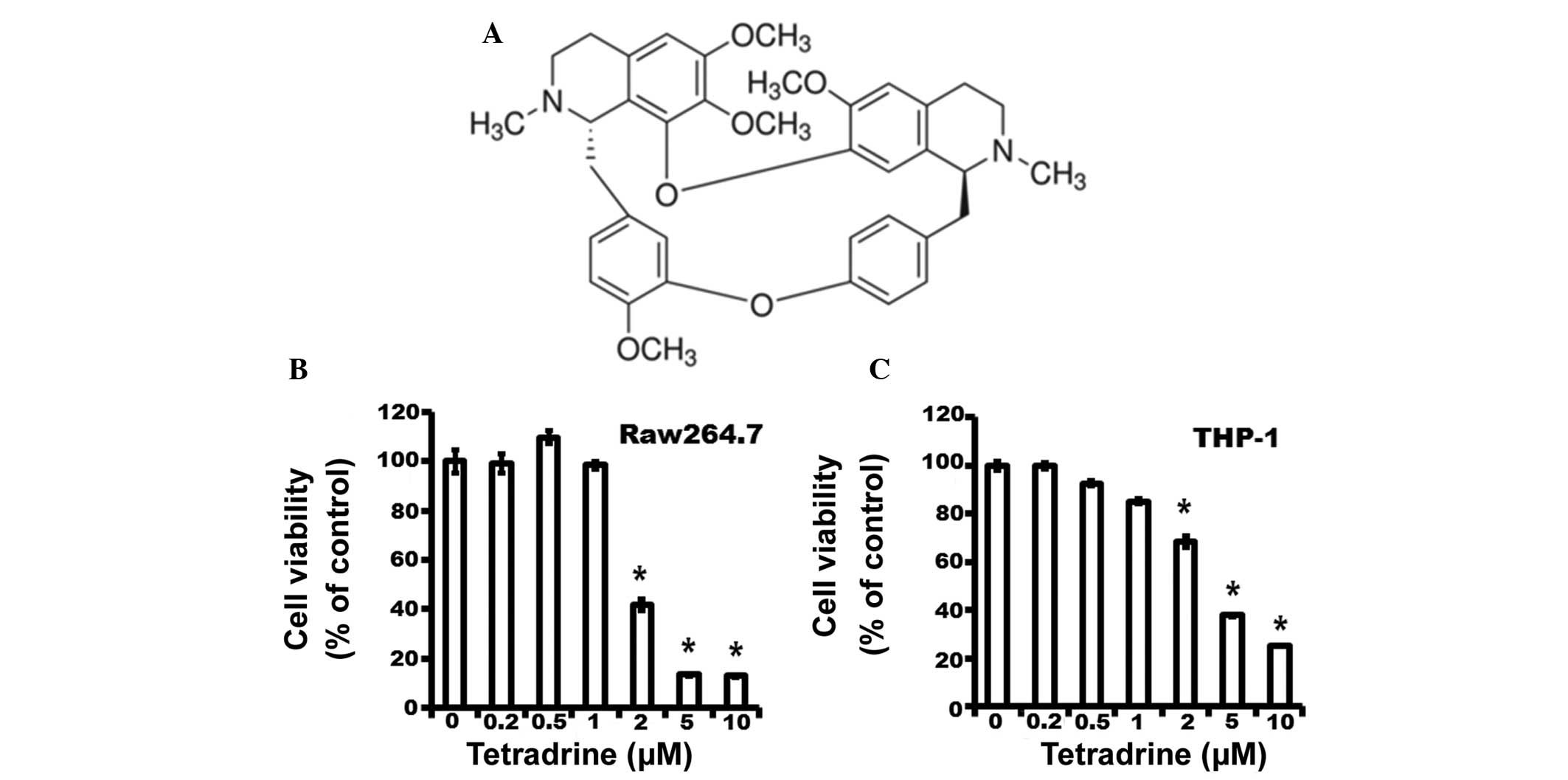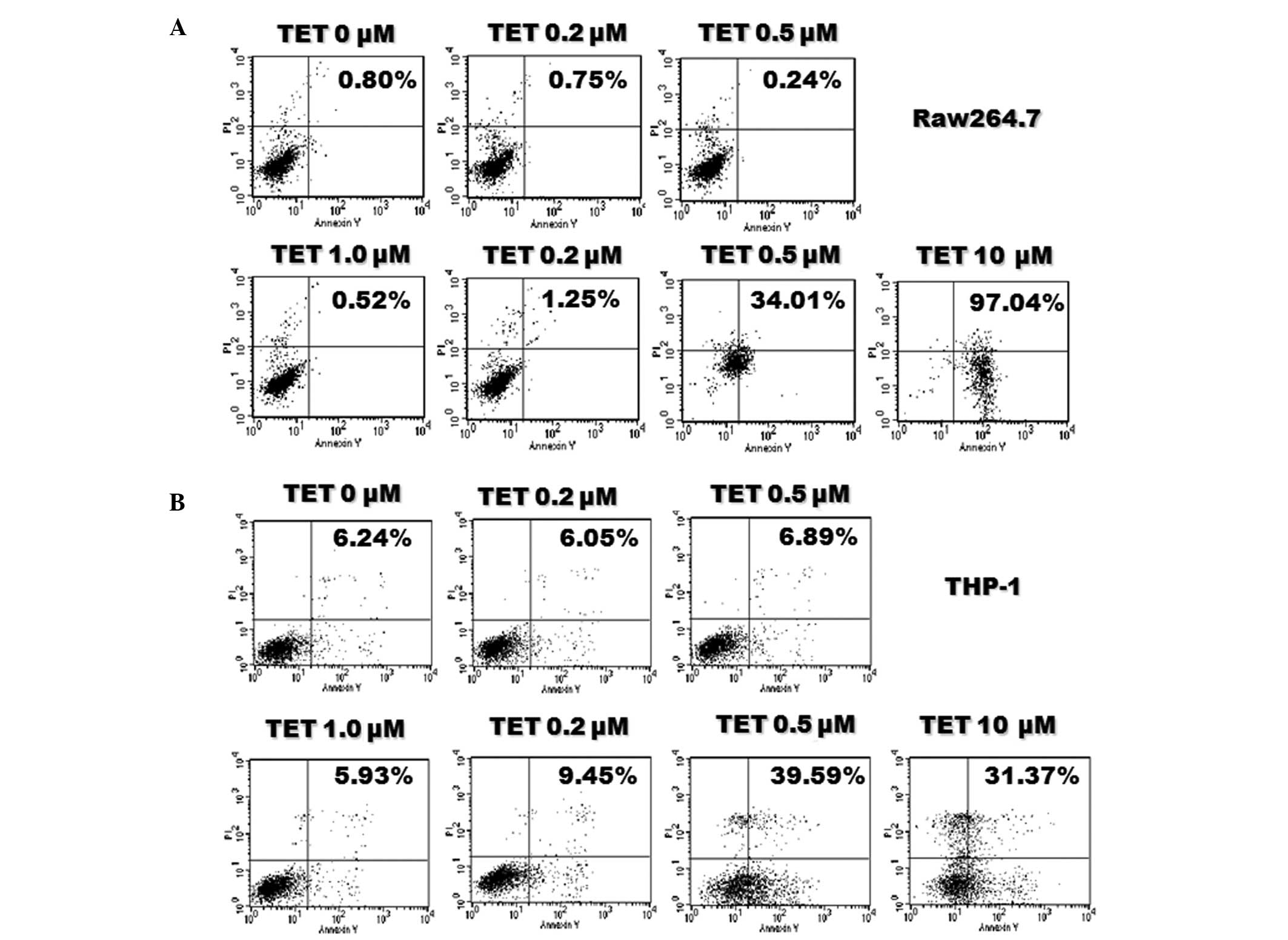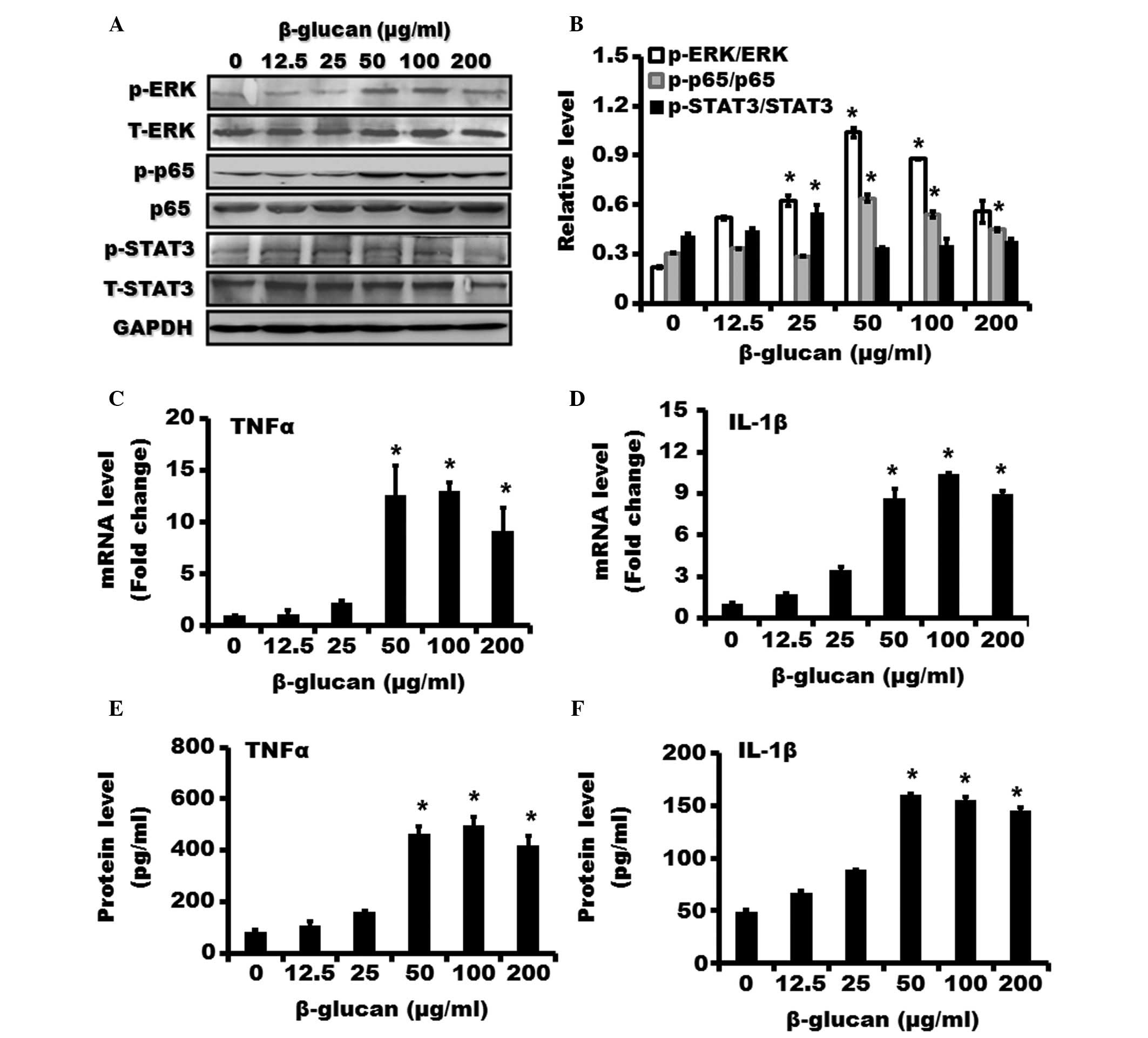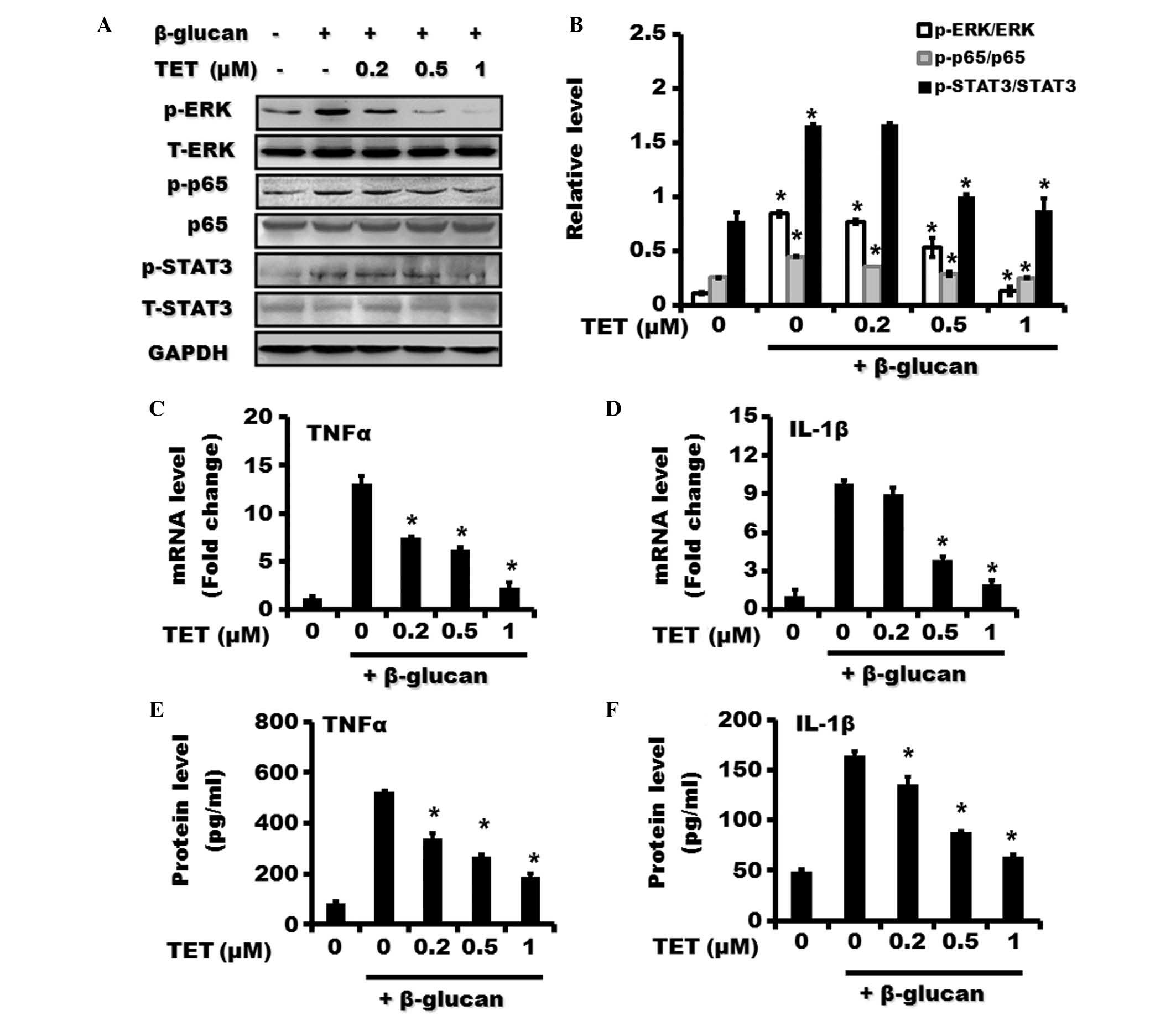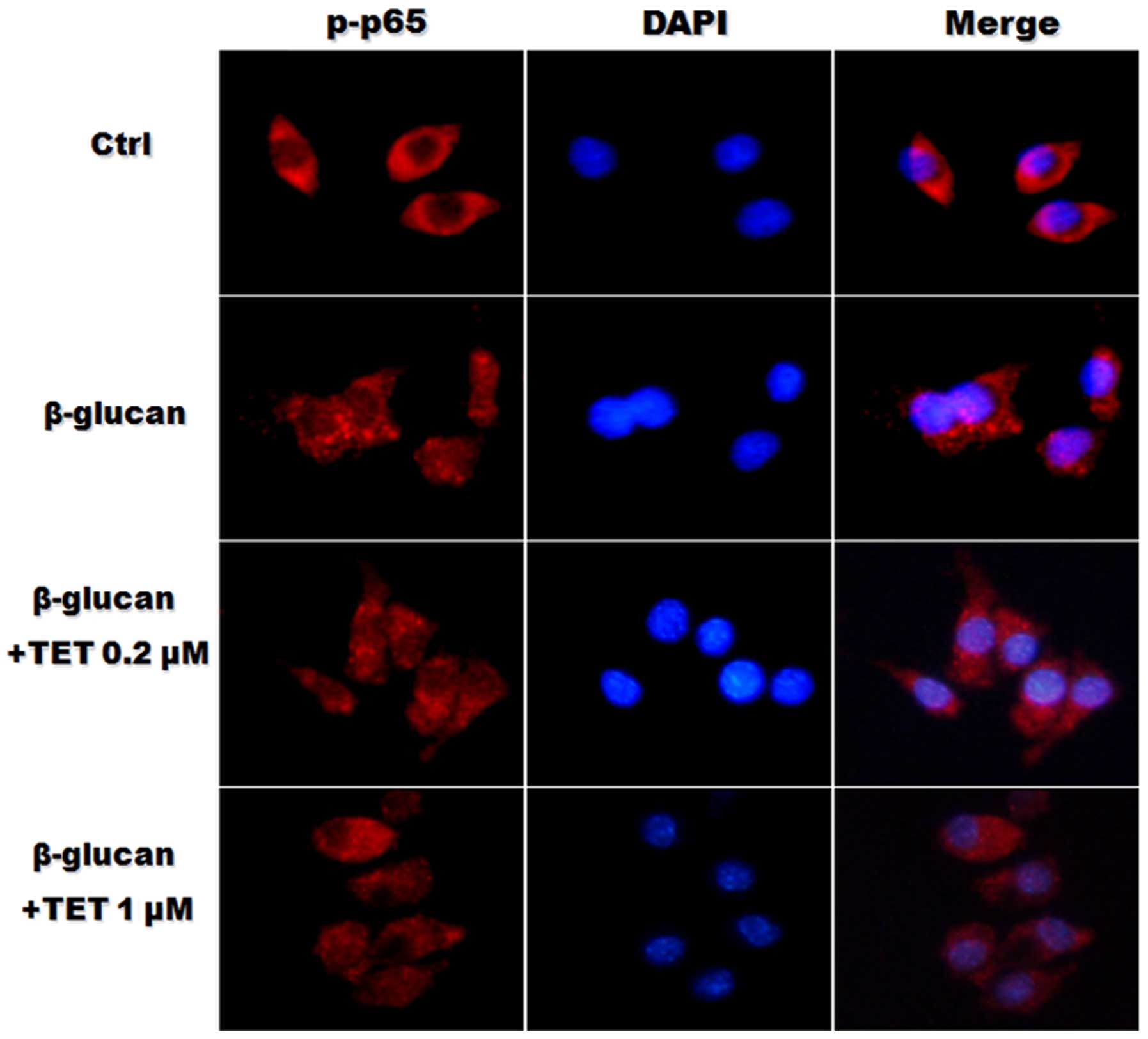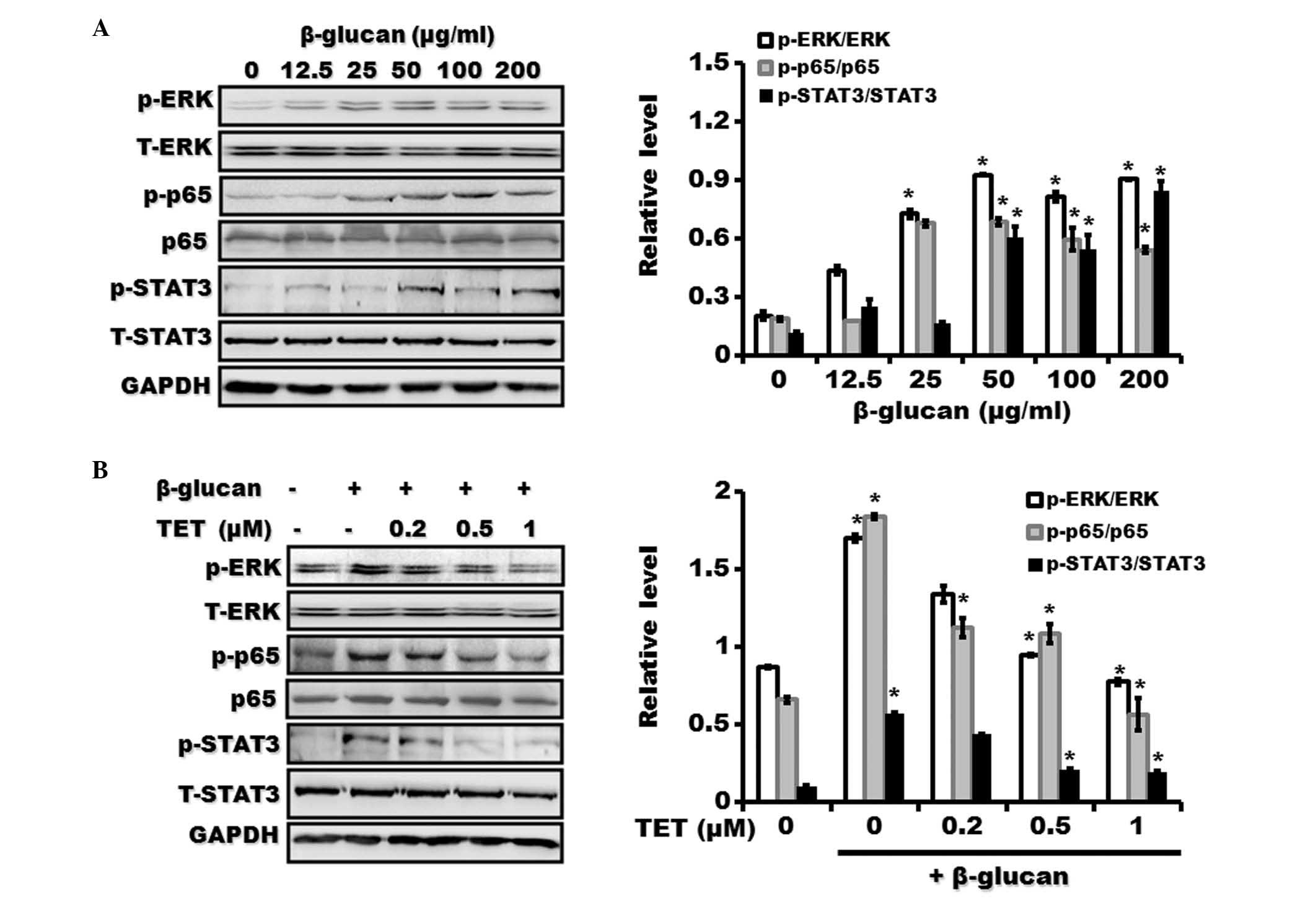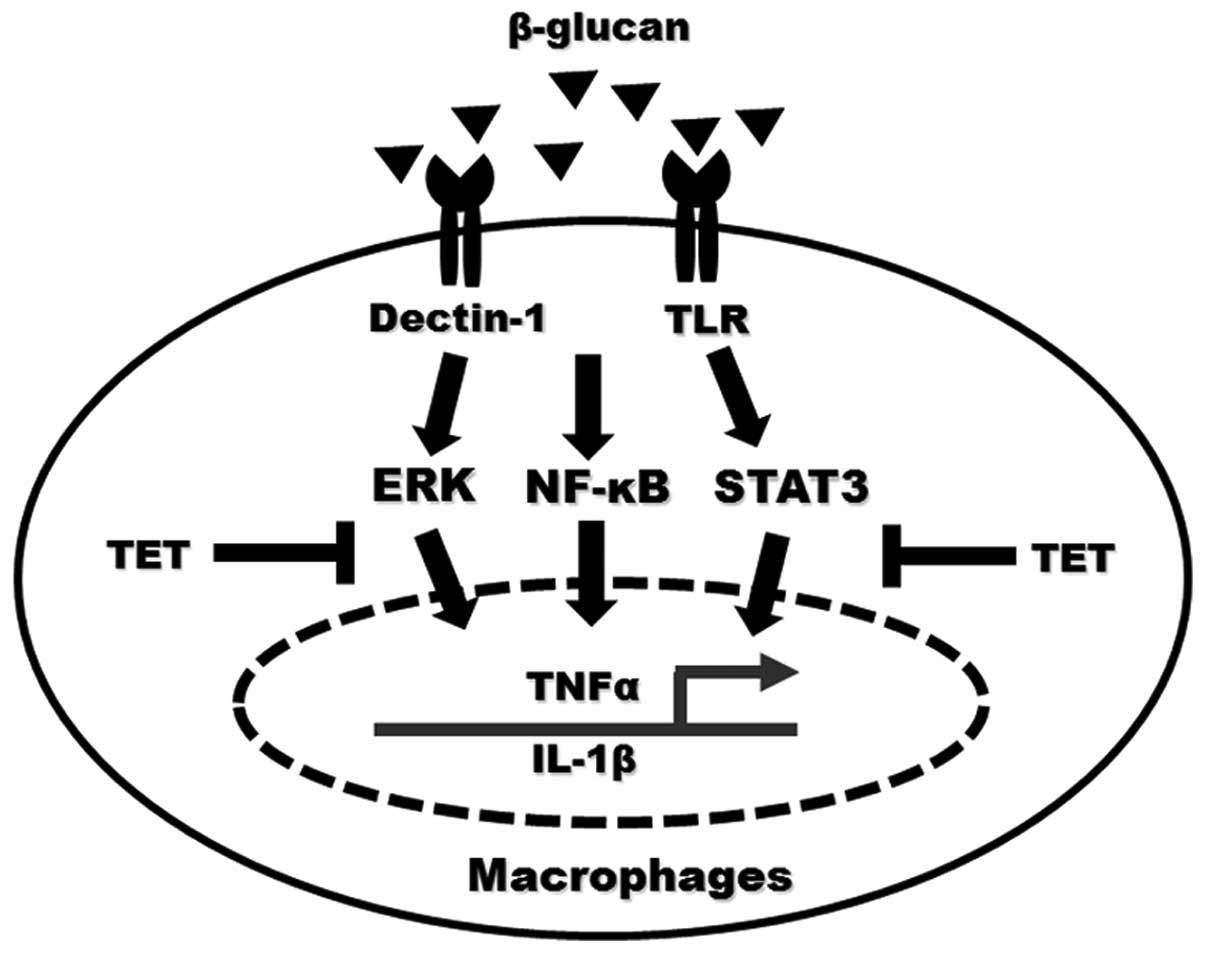|
1
|
Qin R, Shen H, Cao Y, Fang Y, Li H, Chen Q
and Xu W: Tetrandrine induces mitochondria-mediated apoptosis in
human gastric cancer BGC-823 cells. PLoS One. 8:e764862013.
View Article : Google Scholar : PubMed/NCBI
|
|
2
|
Qiu W, Su M, Xie F, Ai J, Ren Y, Zhang J,
Guan R, He W, Gong Y and Guo Y: Tetrandrine blocks autophagic flux
and induces apoptosis via energetic impairment in cancer cells.
Cell Death Dis. 5:e11232014. View Article : Google Scholar : PubMed/NCBI
|
|
3
|
He FQ, Qiu BY, Li TK, Xie Q, Cui de J,
Huang XL and Gan HT: Tetrandrine suppresses amyloid-β-induced
inflammatory cytokines by inhibiting NF-κB pathway in murine BV2
microglial cells. Int Immunopharmacol. 11:1220–1225. 2011.
View Article : Google Scholar : PubMed/NCBI
|
|
4
|
Xue Y, Wang Y, Feng DC, Xiao BG and Xu LY:
Tetrandrine suppresses lipopolysaccharide-induced microglial
activation by inhibiting NF-kappaB pathway. Acta Pharmacol Sin.
29:245–251. 2008. View Article : Google Scholar : PubMed/NCBI
|
|
5
|
Dang Y, Xu Y, Wu W, Li W, Sun Y, Yang J,
Zhu Y and Zhang C: Tetrandrine suppresses
lipopolysaccharide-induced microglial activation by inhibiting
NF-κB and ERK signaling pathways in BV2 cells. PLoS One.
9:e1025222014. View Article : Google Scholar
|
|
6
|
Kang OH, An HJ, Kim SB, Mun SH, Seo YS,
Joung DK, Choi JG, Shin DW and Kwon DY: Tetrandrine suppresses
pro-inflammatory mediators in PMA plus A23187-induced HMC-1 cells.
Int J Mol Med. 33:1335–1340. 2014.PubMed/NCBI
|
|
7
|
Chan GC, Chan WK and Sze DM: The effects
of beta-glucan on human immune and cancer cells. J Hematol Oncol.
2:252009. View Article : Google Scholar : PubMed/NCBI
|
|
8
|
Li X, Wang J, Wang W, Liu C, Sun S, Gu J,
Wang X, Boraschi D, Huang Y and Qu D: Immunomodulatory activity of
a novel, synthetic beta-glucan (β-glu6) in murine macrophages and
human peripheral blood mononuclear cells. PLoS One. 8:e803992013.
View Article : Google Scholar
|
|
9
|
Karumuthil-Melethil S, Gudi R, Johnson BM,
Perez N and Vasu C: Fungal β-glucan, a dectin-1 ligand, promotes
protection from type 1 diabetes by inducing regulatory innate
immune response. J Immunol. 193:3308–3321. 2014. View Article : Google Scholar : PubMed/NCBI
|
|
10
|
Brown GD, Taylor PR, Reid DM, Willment JA,
Williams DL, Martinez-Pomares L, Wong SY and Gordon S: Dectin-1 is
a major beta-glucan receptor on macrophages. J Exp Med.
196:407–412. 2002. View Article : Google Scholar : PubMed/NCBI
|
|
11
|
Yadav M and Schorey JS: The beta-glucan
receptor dectin-1 functions together with TLR2 to mediate
macrophage activation by mycobacteria. Blood. 108:3168–3175. 2006.
View Article : Google Scholar : PubMed/NCBI
|
|
12
|
Chang ZQ, Lee JS, Gebru E, Hong JH, Jung
HK, Jo WS and Park SC: Mechanism of macrophage activation induced
by beta-glucan produced from Paenibacillus polymyxa JB115. Biochem
Biophys Res Commun. 391:1358–1362. 2010. View Article : Google Scholar
|
|
13
|
Zhao H, Luo F, Li H, Zhang L, Yi Y and Wan
J: Antinociceptive effect of tetrandrine on LPS-induced
hyperalgesia via the inhibition of IKKβ phosphorylation and the
COX-2/PGE2 pathway in mice. PLoS One. 9:e945862014.
View Article : Google Scholar
|
|
14
|
Wang QS, Cui YL, Gao LN, Guo Y, Li RX and
Zhang XZ: Reduction of the pro-inf lammator y response by
tetrandrine-loading poly (L-lactic acid) films in vitro and in
vivo. J Biomed Mater Res A. 102:4098–4107. 2014. View Article : Google Scholar : PubMed/NCBI
|
|
15
|
Lin ST, Wang Y, Xue Y, Feng DC, Xu Y and
Xu LY: Tetrandrine suppresses LPS-induced astrocyte activation via
modulating IKKs-IkappaBalpha-NF-kappaB signaling pathway. Mol Cell
Biochem. 315:41–49. 2008. View Article : Google Scholar : PubMed/NCBI
|















